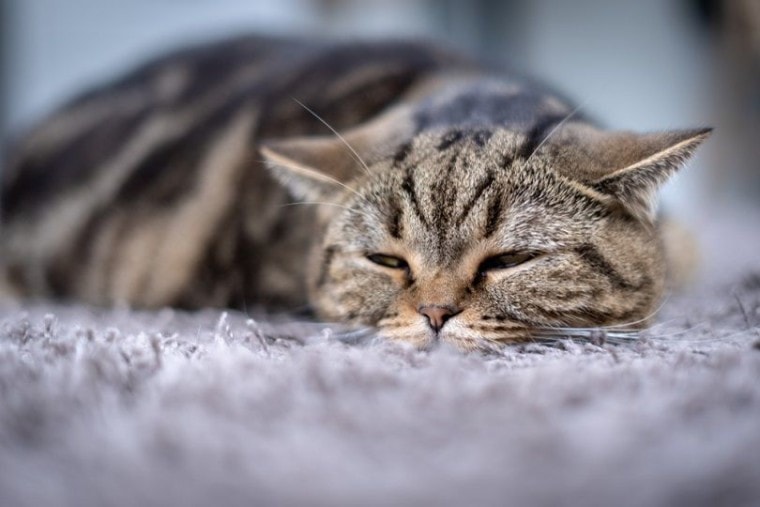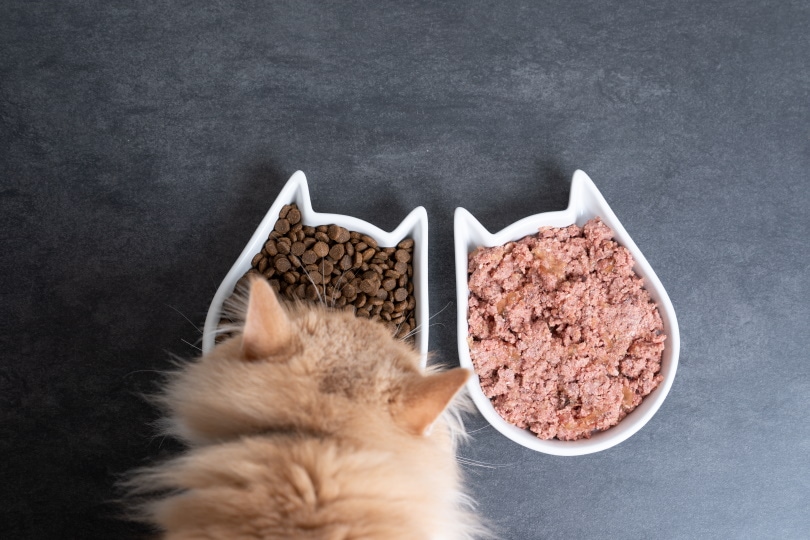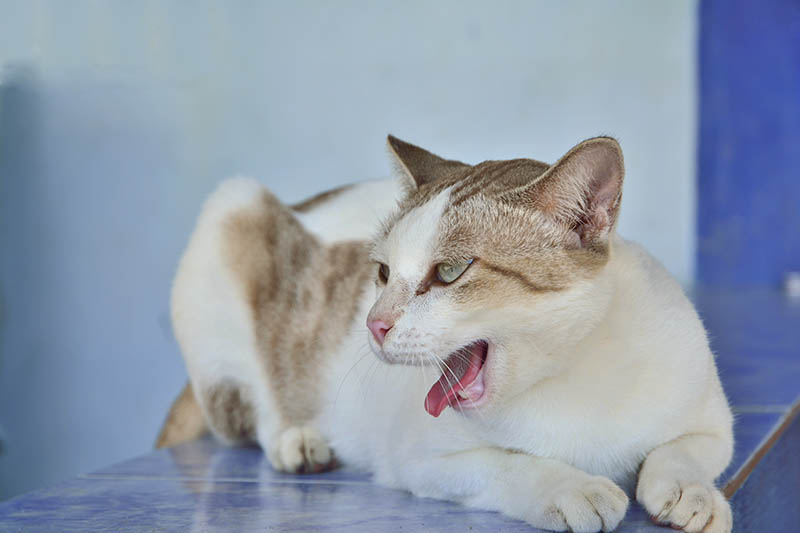
You might already know that hiccups are caused by spasms in our diaphragms that create strange and abrupt noises. But did you know that cats are capable of hiccupping, too? Even though it is rare, hiccupping is normal for kittens and cats on occasion. So, cats hiccupping every once in a while is normal, but if it starts happening multiple times a day, it could be an indication that there is a bigger problem going on.

The 5 Causes of Cat Hiccups
1. Eating Too Fast
Cats and dogs both have a bad habit of eating too fast at times. They don’t chew properly and end up swallowing a lot of air while eating, which can lead to hiccups or even vomiting.
2. Overeating
Another cause for hiccups could be because they ate too much. The same thing happens with some humans.

3. Hairballs
Cats try to loosen or cough up hairballs that are stuck in their throats. The irritation could mess with their throat muscles and make them hiccup as a result.
4. Anxiety
Although it sounds strange, hiccups could be a sign of an emotional problem like separation anxiety. Other common symptoms are excessive meowing, urinating on your belongings, over or undereating, excessive self-grooming, and other destructive behaviors.
5. Allergies or Asthma
People sometimes confuse a cat coughing for the hiccups. If your cat has known allergies, they could be coughing because of allergens or heartworms and not be hiccupping at all.

What Does a Cat’s Hiccup Sound Like?
It’s not always easy to tell if your cat has hiccups or not. Cats with hiccups could make a squeaking noise when they breathe, have a spasm that is visible in their abdomen, or sound like something is caught in their throats.
Treatment for Cat Hiccups
More often than not, hiccupping in cats is completely normal and tends to go away on its own. Even if it happens somewhat frequently, it could just be because your cat is eating too fast. Pay attention to what they did right before the hiccups started. If they are happening more frequently, it may be time to reach out to your veterinarian.
How to Prevent Hiccups
The best way to stop your cat from getting hiccups is to slow them down while they eat. Invest in a puzzle feeder or automatic feeder. These types of feeders help your cats to eat smaller portions or slow down during feeding time.
You can also try to reduce the occurrence of hairballs. Make sure you brush your cat regularly to limit the amount of hair that gets in their mouths while they’re grooming.
Another method to reduce hiccups is to reduce anxiety. Try to help your cat feel safe in new situations and provide them with their own space whenever they feel nervous.


Final Thoughts on Hiccupping Cats
Cat hiccups aren’t necessarily a bad thing. There are rare times when the hiccups are a sign of something more serious. But again, they are still normal for all mammals to get, and there is likely a valid explanation for why it’s happening. If you are concerned about their well-being, it’s always best to reach out to your vet and discuss the issue with them directly.
Featured Image Credit: one photo, Shutterstock





